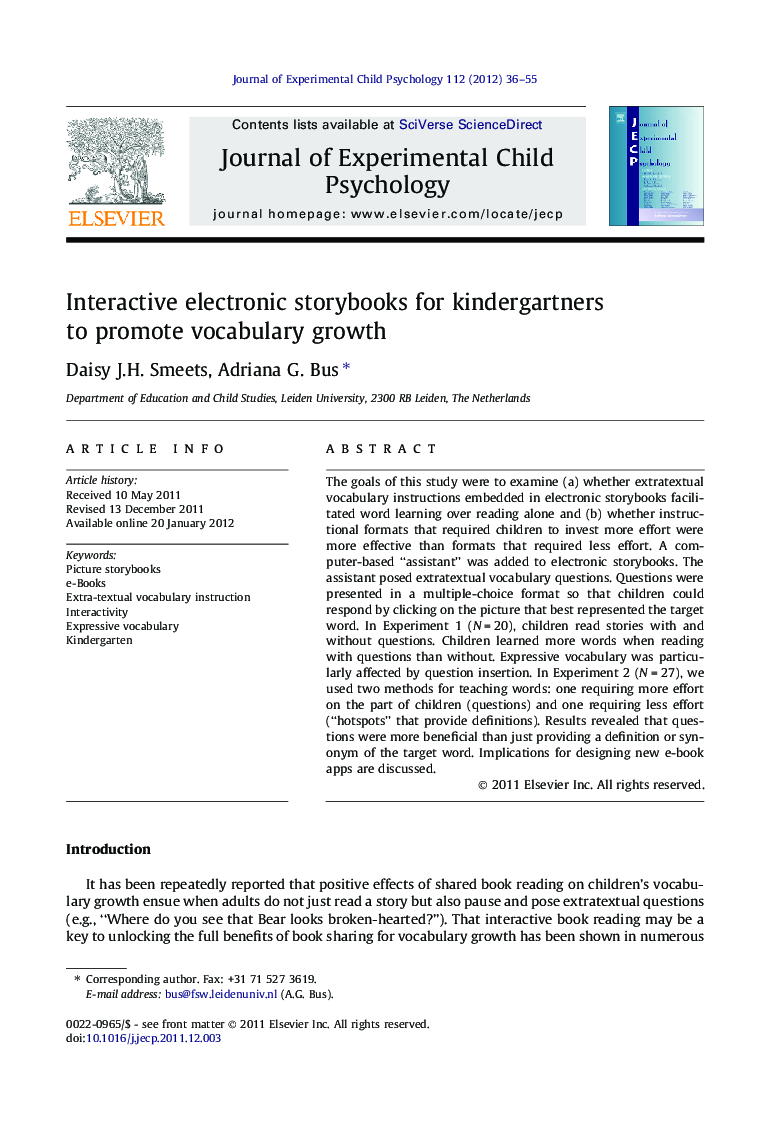| Article ID | Journal | Published Year | Pages | File Type |
|---|---|---|---|---|
| 918182 | Journal of Experimental Child Psychology | 2012 | 20 Pages |
The goals of this study were to examine (a) whether extratextual vocabulary instructions embedded in electronic storybooks facilitated word learning over reading alone and (b) whether instructional formats that required children to invest more effort were more effective than formats that required less effort. A computer-based “assistant” was added to electronic storybooks. The assistant posed extratextual vocabulary questions. Questions were presented in a multiple-choice format so that children could respond by clicking on the picture that best represented the target word. In Experiment 1 (N = 20), children read stories with and without questions. Children learned more words when reading with questions than without. Expressive vocabulary was particularly affected by question insertion. In Experiment 2 (N = 27), we used two methods for teaching words: one requiring more effort on the part of children (questions) and one requiring less effort (“hotspots” that provide definitions). Results revealed that questions were more beneficial than just providing a definition or synonym of the target word. Implications for designing new e-book apps are discussed.
► Two interactive devices of electronic storybooks for kindergartners were examined. ► Mc-questions and definitions promoted word learning more than reading only. ► Mc-questions were more effective than definitions. ► Interactivity was most effective with active participation and deep processing.
